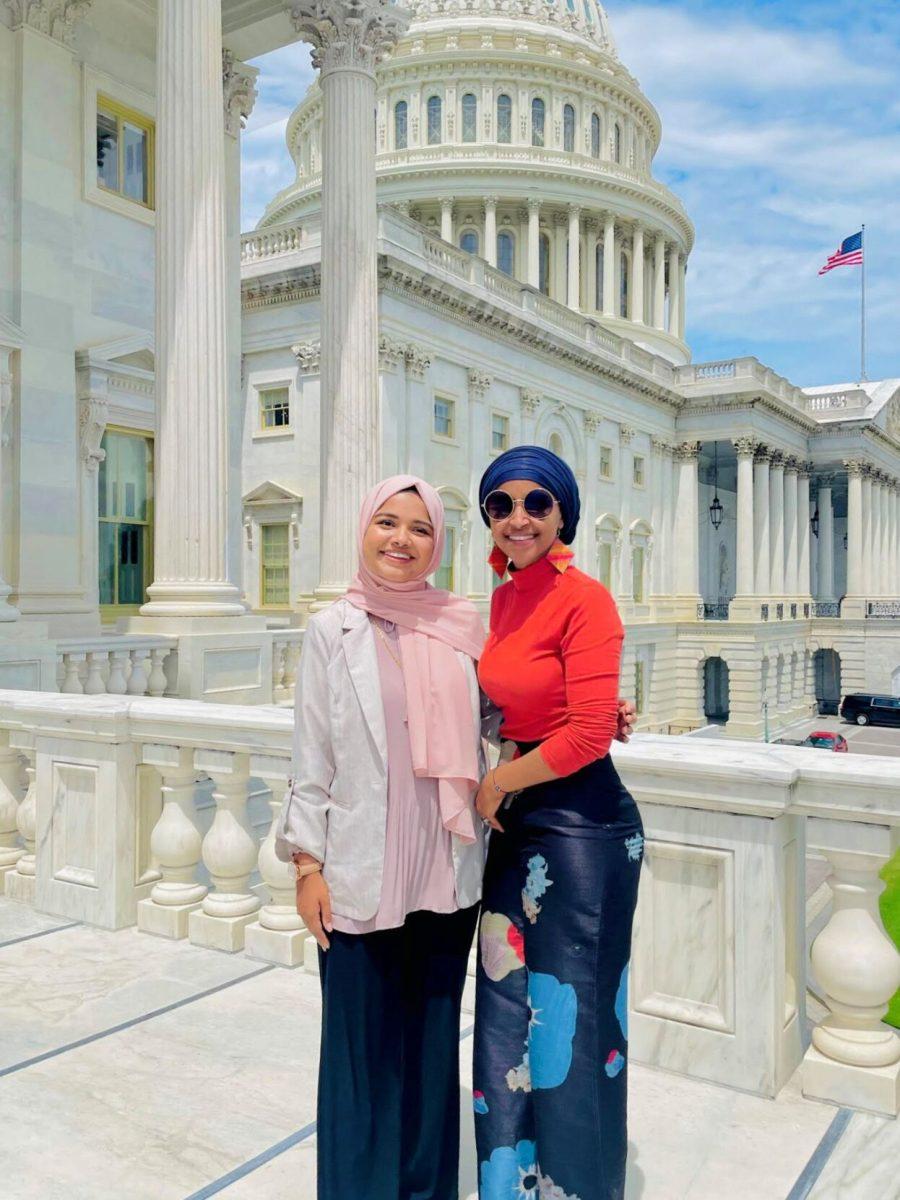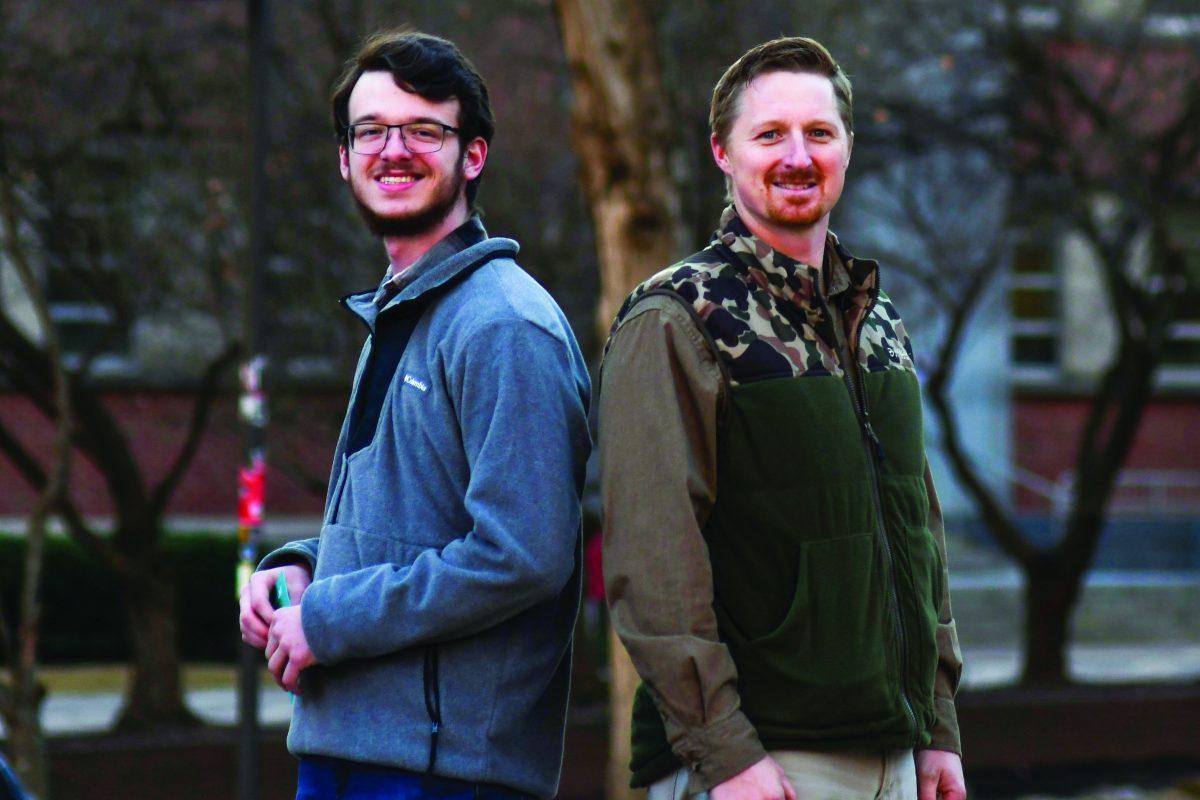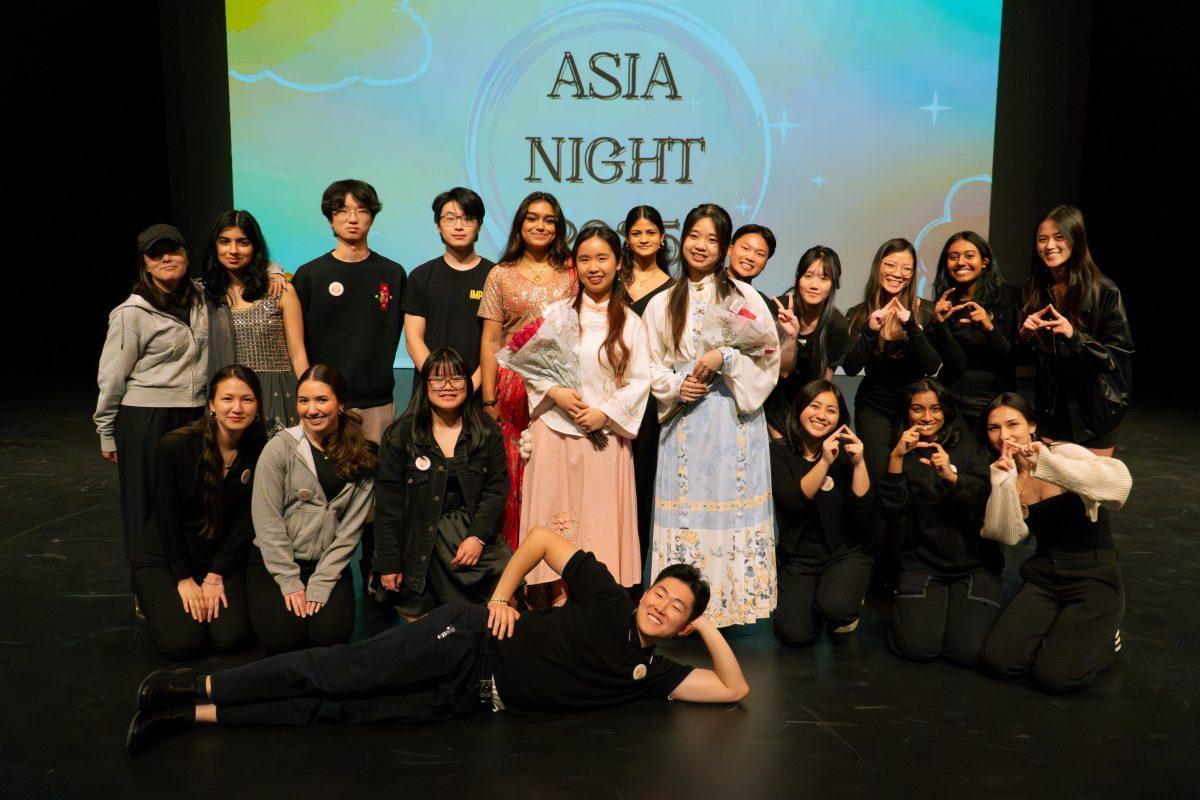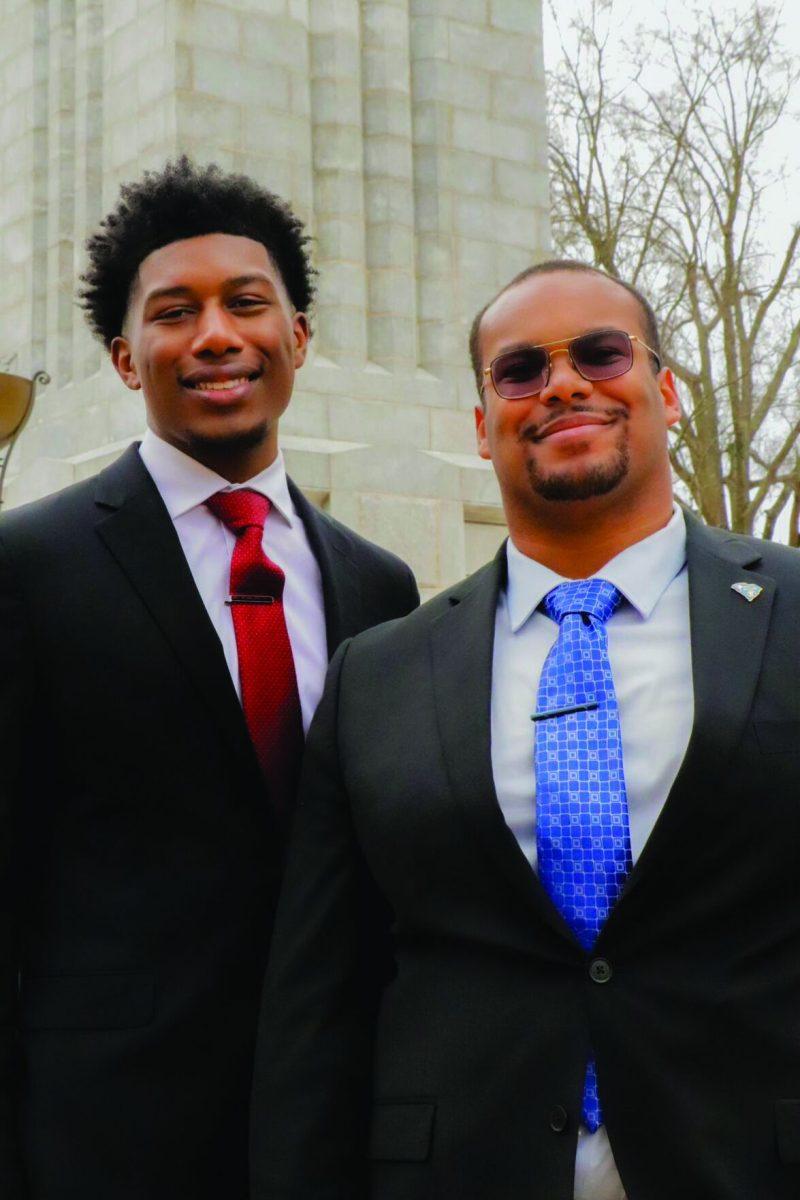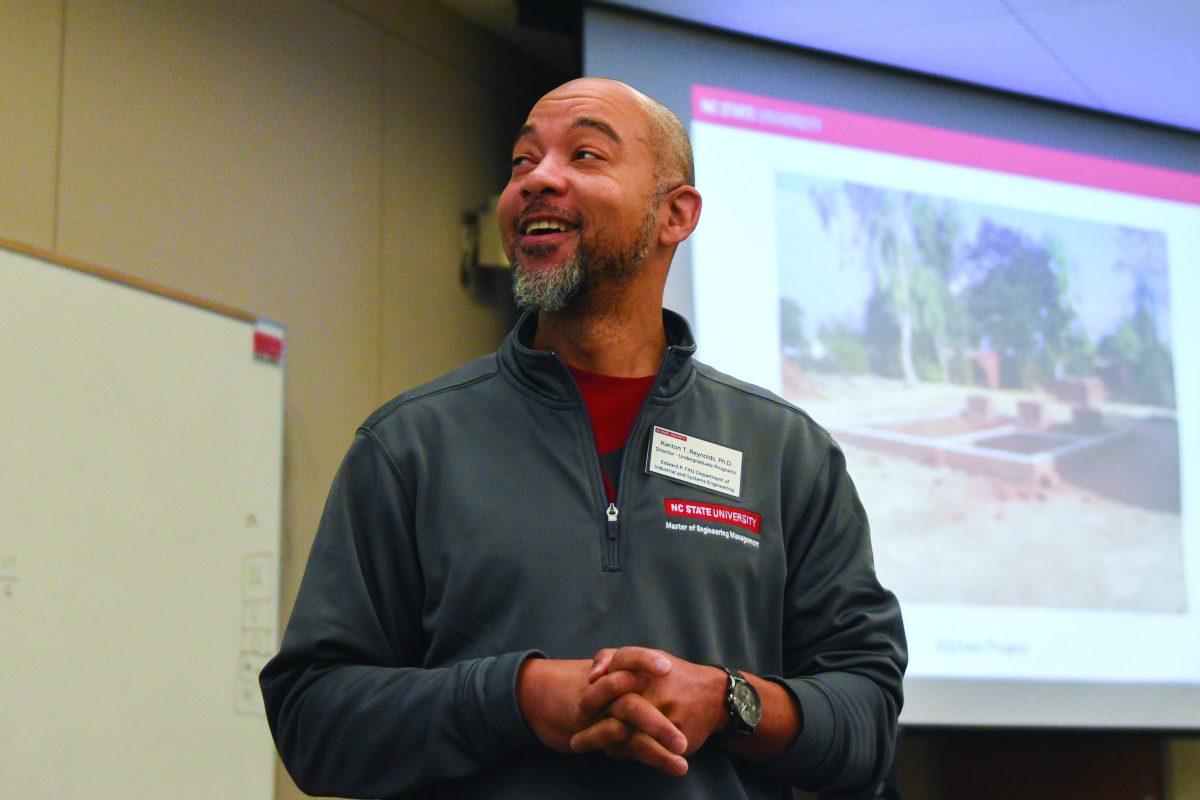Sinthia Shabnam, a graduate student in public administration, learned the dynamics of federal politics working as an intern in the office of Rep. Ilhan Omar of Minnesota for the summer.
Shabnam said she was thrilled to gain experience under Omar.
“I always saw myself as someone who would either be in the policy development realm or as someone who runs for office someday,” Shabnam said. “That’s definitely still something I’m interested in, so I think what better way than to actually work with someone who’s an elected official? And specifically, for me, it was a really big deal to be able to work for the first Muslim woman in Congress, as well as the first Muslim who wears hijab in Congress. And she’s also Black and a woman of color, and she’s also a refugee and immigrant. She just carries so many of these layers and layers of background that I think makes her experience really unique.”
Shabnam was placed in her internship through the Islamic Scholarship Fund, an organization that aims to increase Muslim American representation in the government, media and film. Shabnam said she is grateful for this organization because it provides internship opportunities to students who may not have otherwise had them.
“It’s really hard to land [congressional] internships for folks of diverse backgrounds because you have to be able to afford to live in D.C. and to do these, which eliminates a lot of opportunity for Black, Brown, people of color, individuals from lower income backgrounds or folks who don’t have political connections because you have to figure out how to live there on lower paid internships to begin with,” Shabnam said. “It’s really great to know that there are some organizations that place students from diverse backgrounds, such as Congressional Black Caucus, Hispanic Caucus, the Women’s Caucus, Progressive Caucus … I think it’s really good just for people to know there are opportunities and windows of opportunity for you in systems that you might think you could never enter into.”
Steven Greene, a professor of political science, said a congressional internship allows students to discover the demands of a career in politics.
“It seems kind of exciting, and maybe even glamorous, to a lot of people until they actually start doing work in politics and are like ‘Oh, this is maybe not for me,’” Greene said. “Of course, for others, it is. The current deputy press secretary for President Biden [Andrew Bates] was one of our [political science] majors from, gosh, I think 15 years ago. And so obviously, it worked out for him, and he decided he loved working in politics.”
Previously, Shabnam has worked as an intern for Cheri Beasley, the first African American woman to serve as Chief Justice of the North Carolina Supreme Court, and Rep. Gale Adcock, who represents District 41 in the North Carolina House of Representatives. Shabnam said she was eager to learn about policy making on the federal level and observe national politics at the nucleus; during Shabnam’s internship, she witnessed the response to the overturn of Roe v. Wade.
“It was very surreal, regardless of how people feel about that issue, it was very surreal to be there during that peak political moment because it wasn’t just us watching something happening on TV, it was something happening in real life,” Shabnam said. “It was just very interesting to witness how policy change can actually be immediate.”
According to Shabnam, her primary responsibilities included letter-writing, answering constituent phone calls and writing memos and policy briefs. Shabnam said her education at NC State helped her succeed on Capitol Hill.
“I found that a lot of the things I learned in my MPA classes, I found I was able to use those skills in the office,” Shabnam said “And I think it really showed — I already knew how to write briefs, I already knew how to write memos.”
Shabnam said reading Omar’s mail provided insight into the abundance of negative attention elected officials receive.
“In Congresswoman Omar’s office, she receives a lot of hate, and a lot of targeted hate around her identity and her background, which I think for me as a Brown Muslim woman, it’s something that is really intense to see, but I think it was also very valuable for me to see,” Shabnam said. “This is what a career in this field looks like for someone who looks like you … I think it’s a really good experience for people to have who are interested in running for office in the future because it really shows you, this is what you’re getting yourself into.”
Shabnam works full time as a field organizer for MPower Change, a grassroots organization focused on Muslim American advocacy for racial, economic and social justice issues. Shabnam said working in Congress helped her gain an understanding of how to effectively advocate for change.
“Seeing how grassroots organizations of all kinds interact with Congress was a really beneficial skill for me to learn,” Shabnam said. “I got to see what aspects of grassroots organizing is effective, and what aspects of it isn’t. And I noticed, for example, phone calls are really effective because those are always answered, and if you’re a constituent, then they are recorded.”
Shabnam said one of the highlights of her experience was working with a diverse group of people.
“Most of the offices are very, very white, including their interns, including their staff,” Shabnam said. “It’s incredibly common, whether they’re Republican or Democrat, but in my office, it was so diverse … And what I loved so much about my office specifically is I got to come into work and not have to pretend to be whitewashed in any way, shape or form — I could just be me, and it was totally okay. And I love that so much. And I really hope in the future, we get to see government spaces be as diverse as my office because that’s what America looks like.”
Greene said an internship in politics is ultimately an act of kindness.
“It really is public service,” Greene said. “I don’t think people think about that enough, they say, ‘It’s politics and everybody fighting,’ but even if they’re fighting, they’re fighting over what they think is best for our state or our country and trying to make a difference. I think it’s important and great to be a part of that.”
When asked if she had a favorite memory from her internship, Shabnam said she couldn’t pick just one.
“I mean, honestly, every day of this experience stood out to me,” Shabnam said. “It was just very surreal. I’m very grateful that I had the experience. I do hope that more students who are interested in the Hill try to get a Hill experience as soon as they can because you learn so much.”


